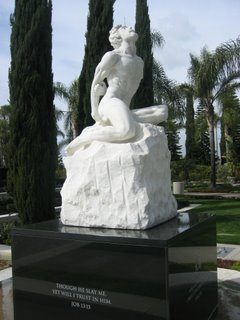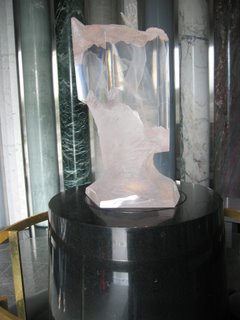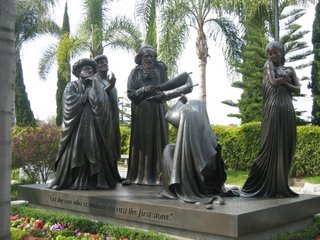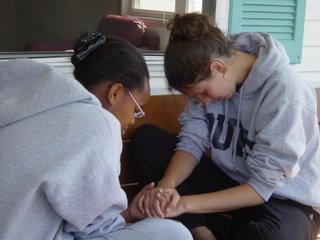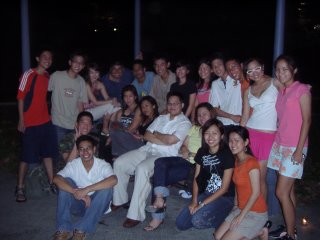Come, All Ye Weary and Heavy Laden
Have you ever felt like your heart was too pained and scarred to continue beating? That you couldn't raise your voice in song simply because there's no song left to sing? Aren't there those moments where it all seems so meaningless, so purposeless, so futile and empty? In those moments, vision is clouded and the mind confused, and all one feels is hurt and anguish. Isn't that the time when you want to throw your hands in the air and say, "I give up". Maybe there's someone amongst us who feels this way- like there simply isn't a way to move on with life, that the memories of the past and the disappointment attached to that time ago are just like hooks which cling to us and drag us backward, piercing our flesh and bleeding us dry of whatever was pleasant, beautiful, hopeful and abundant.
And yet, Jesus said that He came to give life, and 'life abundant'. Surely Jesus never lied, surely that Lamb of God would never bring deceit and falsity to His lips- no, Jesus only speaks Truth, and He IS here to give us peace of heart, reconciliation to the Father, and hope for tomorrow.
Jesus said, "Come unto Me, all ye weary and heavy laden, and I will give you rest for your souls."
Take some time today, pause and think of what the Lord has done for you and for me. Wait upon the Lord, who knows each care and hurt, each bruise and wound, and tenderly bends to us to care for our pains. He alone can give that peace and healing that our hearts so desperately cry out for- only Jesus. He whose hands were pierced with nails of hate, whose feet were marred with spikes of malice, whose side was thrust through, and whose blood covered that hill on Calvary. The price He paid for our lives, for our reconcilation to God, with nothing less than His own suffering.
And today, He stands, calling, "Come, come, come- Come to the Father, my child. Why so broken hearted and tearful? Lift your eyes to Heaven, and rest in my love, my perfect love." Come to Jesus.
Dearest Jesus,
the price you paid for my life was so high- so unbearably high and painfully costly. Surely you understand the fraction of pain that I'm feeling just in my heart. The Bible says that you were a man acquainted with suffering, and that you understand this fragile mortal life- you understand it all, the heartbreaks and pain. Thank you Lord, for being so close and understanding of what us. Thank you for coming to Earth and giving us your greatest gift- yourself. O Lord, we give you praise and thanks that even now, you understand these prayers for deliverance, and that you are ever so close to us. Jesus, I pray for mercy, for deliverance from all these hurtful thoughts and memories. I ask, jesus, that you send Your comforting Spirit to give me rest. All I want to do, Lord, is rest in you and claim your invitation to take refuge and comfort in Your loving arms. You have said that you will never leave us nor forsake us, and Your Word is true. Give me faith to claim this offer of peace that you hold out open, and let me be found in You. Take this heart that has been so battered by the world, and make it whole. Thank you Lord for your lovingkindness, for your perfect love.
In Jesus' name I pray, Amen.

